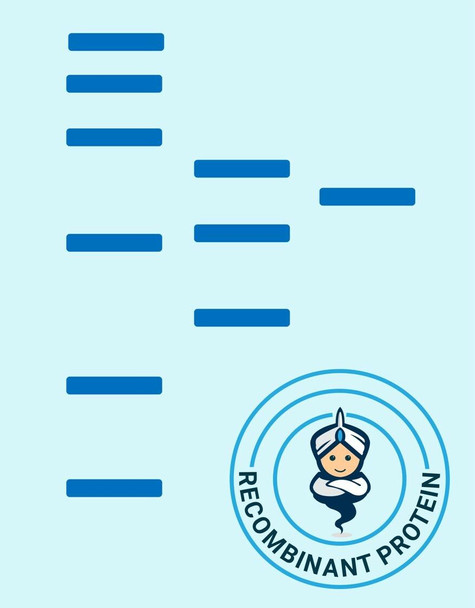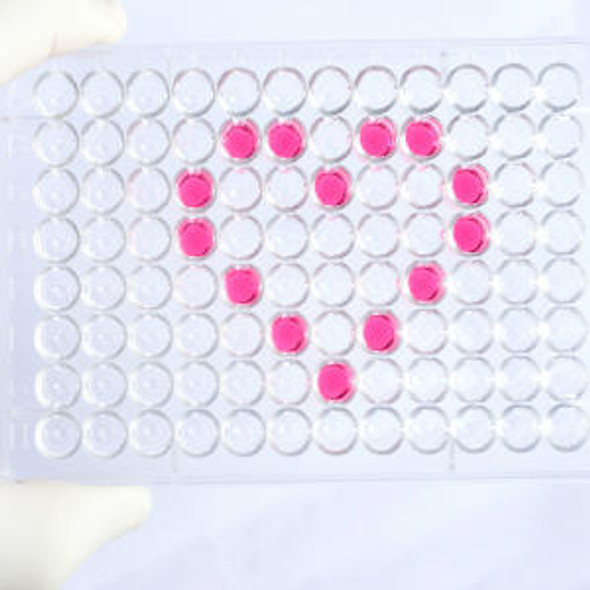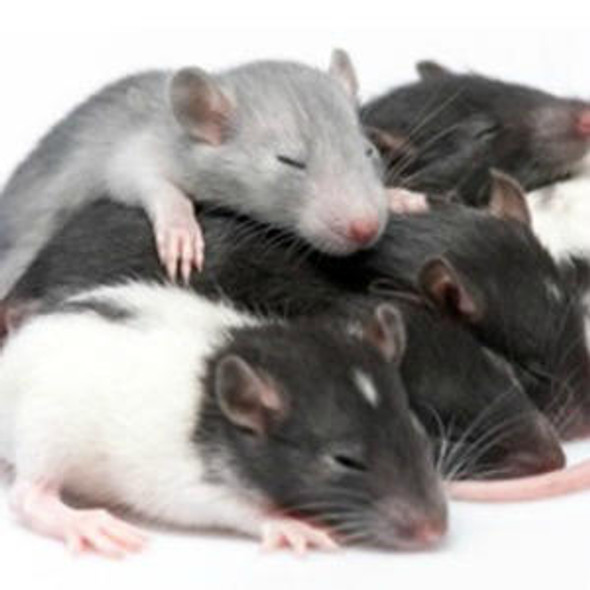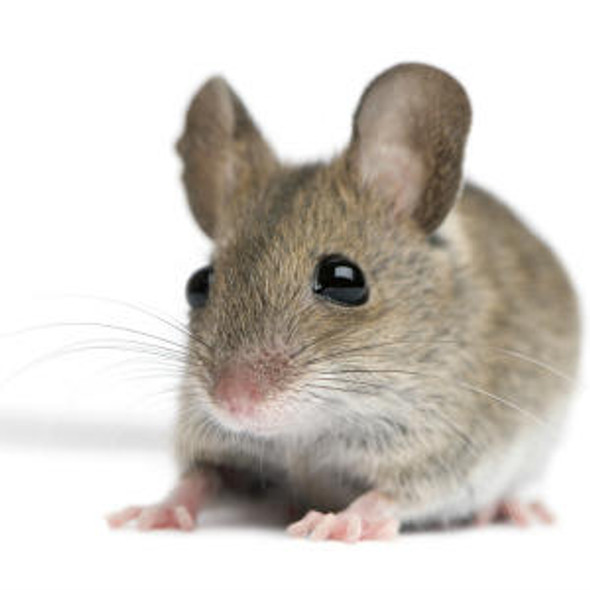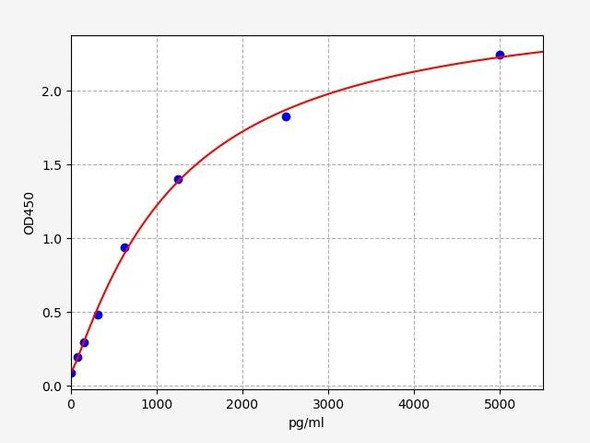Human RHOA Recombinant Protein (RPPB4458)
- SKU:
- RPPB4458
- Product type:
- Recombinant Protein
- Size:
- 20ug
- Species:
- Human
- Target:
- RHOA
- Synonyms:
- Transforming protein RhoA
- Rho cDNA clone 12
- h12
- RHOA
- Source:
- Escherichia Coli
- Uniprot:
- P61586
Description
| Product Name: | Human RHOA Recombinant Protein |
| Product Code: | RPPB4458 |
| Size: | 20µg |
| Species: | Human |
| Target: | RHOA |
| Synonyms: | Transforming protein RhoA, Rho cDNA clone 12, h12, RHOA, ARH12, ARHA, RHO12, RHOH12. |
| Source: | Escherichia Coli |
| Physical Appearance: | Sterile Filtered colorless solution. |
| Formulation: | The RHOA solution (1 mg/ml) 20mM Tris-HCl buffer (pH8.0), 20% glycerol, 0.1M NaCl and 1mM DTT. |
| Stability: | Store at 4°C if entire vial will be used within 2-4 weeks. Store, frozen at -20°C for longer periods of time. For long term storage it is recommended to add a carrier protein (0.1% HSA or BSA).Avoid multiple freeze-thaw cycles. |
| Purity: | Greater than 90.0% as determined by SDS-PAGE. |
| Amino Acid Sequence: | MRGSHHHHHH GMASMTGGQQ MGRDLYDDDD KDRWGSHMAA IRKKLVIVGD GACGKTCLLI VFSKDQFPEV YVPTVFENYV ADIEVDGKQV ELALWDTAGQ EDYDRLRPLS YPDTDVILMC FSIDSPDSLE NIPEKWTPEV KHFCPNVPII LVGNKKDLRN DEHTRRELAK MKQEPVKPEE GRDMANRIGA FGYMECSAKT KDGVREVFEM ATRAALQARR GKKKSGC |
RhoA is a member of the small GTPase superfamily, Rho family, whose members are involved in the regulation and timing of cell division. RHOA is a small GTPase protein which acts to regulate the actin cytoskeleton in the formation of stress fibers and also upon 2 known effector proteins: ROCK1 (Rho-associated, coiled-coil containing protein kinase 1) and DIAPH1 (diaphanous homolog 1 (Drosophila).
RHOA Human Recombinant fused with a 37 amino acid His tag at N-terminus produced in E.Coli is a single, non-glycosylated, polypeptide chain containing 227 amino acids (1-190 a.a.) and having a molecular mass of 25.7kDa (Molecular size on SDS-PAGE will appear higher). The RHOA is purified by proprietary chromatographic techniques.
| UniProt Protein Function: | RHOA: a small G protein of the Rho family. Regulates a signal transduction pathway linking plasma membrane receptors to the assembly of focal adhesions and actin stress fibers. Controls the reorganization of actins into podosomes. Serves as a target for the yopT cysteine peptidase from Yersinia pestis, vector of the plague, and Yersinia pseudotuberculosis, which causes gastrointestinal disorders. |
| UniProt Protein Details: | Protein type:G protein, monomeric, Rho; G protein, monomeric; Motility/polarity/chemotaxis; Oncoprotein; G protein Chromosomal Location of Human Ortholog: 3p21.3 Cellular Component: apical junction complex; focal adhesion; cytoskeleton; lamellipodium; plasma membrane; cell cortex; midbody; cytosol; cell junction; cleavage furrow Molecular Function:GTPase activity; protein binding; myosin binding; GTP binding Biological Process: axon guidance; nerve growth factor receptor signaling pathway; viral reproduction; metabolic process; negative chemotaxis; positive regulation of NF-kappaB import into nucleus; regulation of axonogenesis; regulation of cell migration; Rho protein signal transduction; regulation of osteoblast proliferation; substantia nigra development; transforming growth factor beta receptor signaling pathway; small GTPase mediated signal transduction; positive regulation of stress fiber formation; ephrin receptor signaling pathway; negative regulation of axonogenesis; positive regulation of cytokinesis; platelet activation; positive regulation of I-kappaB kinase/NF-kappaB cascade; phosphoinositide-mediated signaling; apical junction assembly; regulation of small GTPase mediated signal transduction; positive regulation of axonogenesis; actin cytoskeleton organization and biogenesis; positive regulation of neuron differentiation; vascular endothelial growth factor receptor signaling pathway; blood coagulation |
| NCBI Summary: | This gene encodes a member of the Rho family of small GTPases, which cycle between inactive GDP-bound and active GTP-bound states and function as molecular switches in signal transduction cascades. Rho proteins promote reorganization of the actin cytoskeleton and regulate cell shape, attachment, and motility. Overexpression of this gene is associated with tumor cell proliferation and metastasis. Multiple alternatively spliced variants have been identified. [provided by RefSeq, Sep 2015] |
| UniProt Code: | P61586 |
| NCBI GenInfo Identifier: | 47606458 |
| NCBI Gene ID: | 387 |
| NCBI Accession: | P61586.1 |
| UniProt Related Accession: | P61586 |
| Molecular Weight: | 22kDa |
| NCBI Full Name: | Transforming protein RhoA |
| NCBI Synonym Full Names: | ras homolog family member A |
| NCBI Official Symbol: | RHOA |
| NCBI Official Synonym Symbols: | ARHA; ARH12; RHO12; RHOH12 |
| NCBI Protein Information: | transforming protein RhoA |
| UniProt Protein Name: | Transforming protein RhoA |
| UniProt Synonym Protein Names: | Rho cDNA clone 12; h12 |
| Protein Family: | Rhotekin |
| UniProt Gene Name: | RHOA |
| UniProt Entry Name: | RHOA_HUMAN |

